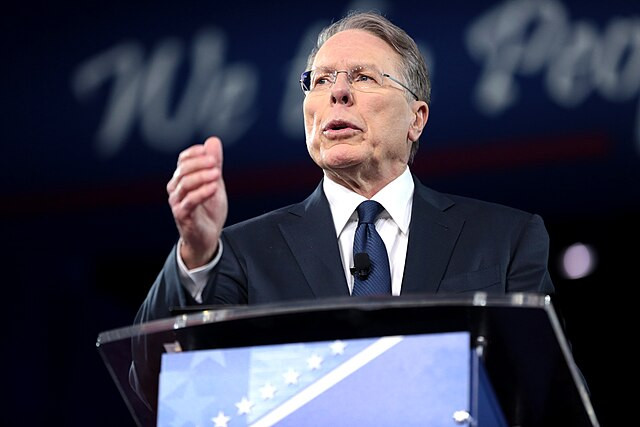Wayne LaPierre, the former leader of the National Rifle Association (NRA), is facing intense scrutiny in a New York corruption trial, just days after announcing his retirement. Accusations against LaPierre and other ex-NRA officials include misappropriating millions in organizational funds for personal use.
In what has been a turbulent period for the NRA, the lawsuit, as reported by NBC News, paints a picture of LaPierre leading a lavish lifestyle at the expense of the NRA's coffers. The prosecution, spearheaded by New York State Attorney General's office attorney Monica Connell, depicted LaPierre as running the NRA as if it were "Wayne's World for decades."
Connell, in court, detailed the alleged extravagances, including over $11 million on private jets and a staggering $500,000 for a Bahamas trip, as per the Associated Press. Connell told the jury, "He led the organization as if it was Wayne's World for decades," pointing to a pattern of extravagant personal spending under the guise of organizational expenses.
Despite these allegations, LaPierre maintained his innocence. In his resignation statement, he expressed his unwavering support for the NRA, citing health reasons for his departure. "I've been a card-carrying member of this organization for most of my adult life, and I will never stop supporting the NRA and its fight to defend Second Amendment freedom. My passion for our cause burns as deeply as ever," he stated.
The NRA, in response to the lawsuit, has taken a stance of self-reform, indicating the termination of individuals allegedly involved in misappropriations and emphasizing their commitment to transparency.
The trial's outcome could have significant repercussions for the NRA. The organization, once seen as an unassailable pillar of American gun rights advocacy, now faces reputational and financial challenges. The lawsuit seeks not only financial redress but also aims to prevent LaPierre and other defendants from serving on the board of any New York charity in the future.
Attorney General Letitia James, representing the state's case, has been vocal about the implications of the trial, insisting on accountability for any misused funds. The timing of LaPierre's retirement, just before the trial, has been met with skepticism, seen by some as a strategic move to influence the trial's proceedings.
As the trial unfolds, it highlights the challenges organizations face in maintaining ethical standards and financial integrity. For the NRA, this trial is not just about the alleged mismanagement by LaPierre but also about the future direction and governance of one of America's most influential advocacy groups.




